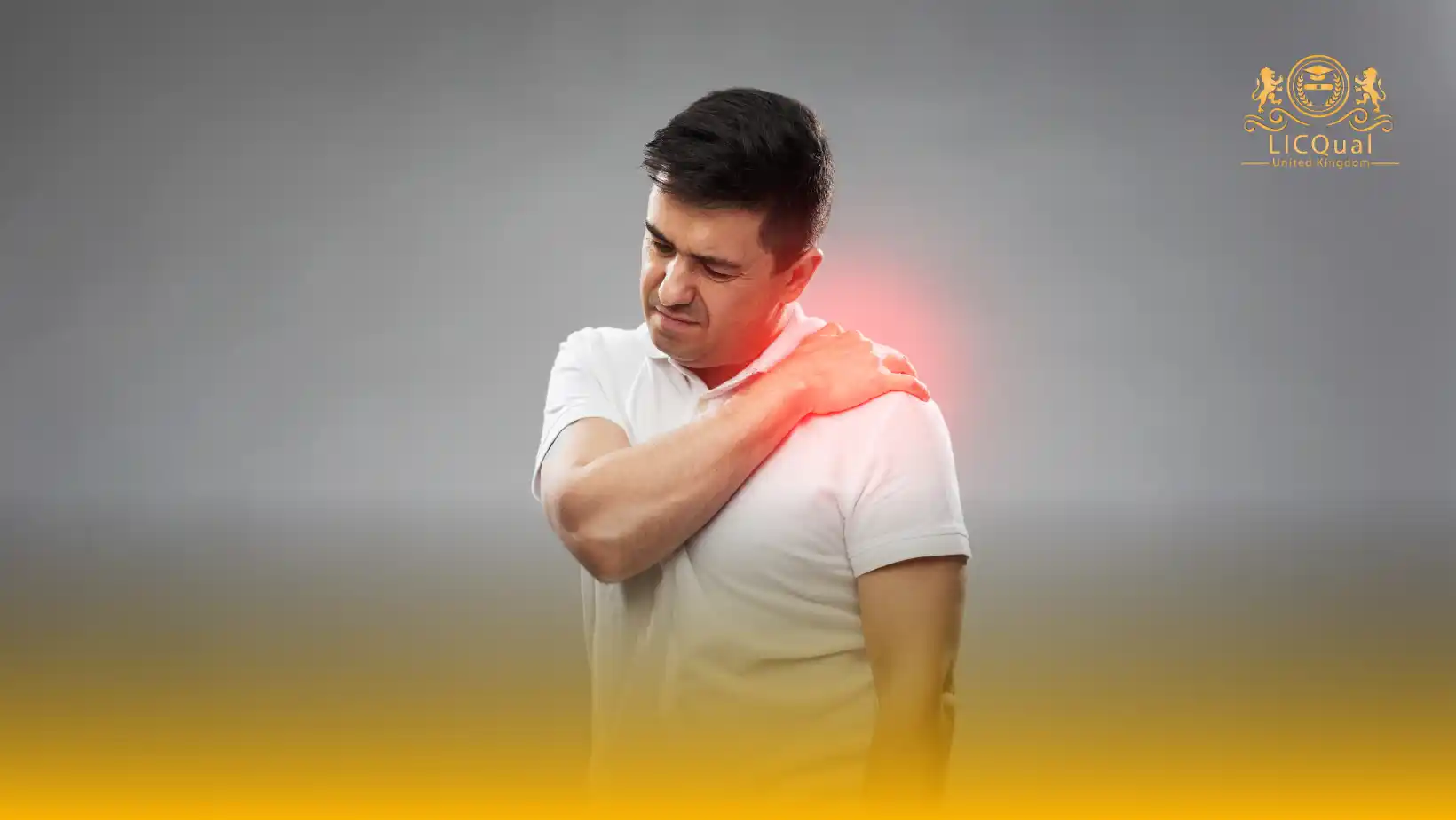The LICQual Level 3 Diploma in Pain Medicine (Dip PM) is a specialised qualification designed for healthcare professionals seeking to advance their expertise in pain management. This programme is tailored for individuals who already possess foundational medical knowledge and wish to enhance their clinical skills, expand their professional knowledge, and boost their Continuing Professional Development (CPD). It is particularly suitable for practitioners aiming to improve patient care outcomes, integrate advanced pain management techniques into practice, and pursue career progression within the healthcare sector.
This Level 3 Diploma combines theoretical understanding with practical applications, enabling learners to develop a comprehensive grasp of pain mechanisms, assessment strategies, treatment modalities, and multidisciplinary approaches. By undertaking this course, learners will gain valuable insights into both acute and chronic pain management, equipping them to deliver high-quality care and informed clinical decisions in diverse healthcare settings.
Centres delivering this qualification are required to uphold rigorous standards, ensuring that learners receive exceptional training. This includes having competent and qualified staff who can effectively guide learners through complex topics, as well as providing all necessary materials and resources to support learning and practical application. Such standards are vital to ensure learner success, foster a stimulating learning environment, and maintain the integrity and credibility of the qualification.
Ideal for healthcare professionals committed to career advancement, the LICQual Level 3 Diploma in Pain Medicine (Dip PM) offers a structured pathway to deepen clinical knowledge, enhance professional capabilities, and strengthen CPD credentials.
Course Overview
Qualification Title
LICQual Level 3 Diploma in Pain Medicine (Dip PM)
Total Units
6
Total Credits
60
GLH
240
Qualification #
LICQ2200909
Qualification Specification
To enroll in the LICQual Level 3 Diploma in Pain Medicine (Dip PM), applicants must meet the following criteria:
|
Qualification# |
Unit Title |
Credits |
GLH |
|---|---|---|---|
|
LICQ2200909-1 |
Introduction to Pain Medicine |
10 |
40 |
|
LICQ2200909-2 |
Pain Assessment and Diagnosis |
10 |
40 |
|
LICQ2200909-3 |
Pharmacological Management of Pain |
10 |
40 |
|
LICQ2200909-4 |
Non-Pharmacological Pain Management |
10 |
40 |
|
LICQ2200909-5 |
Interventional Pain Management Techniques |
10 |
40 |
|
LICQ2200909-6 |
Clinical Governance, Ethics, and Professional Development |
10 |
40 |
By the end of this course, learners will be able to:
Unit 1: Introduction to Pain Medicine
- Define and classify different types of pain, including acute, chronic, neuropathic, and nociceptive.
- Explain the physiological and psychological mechanisms underlying pain perception.
- Recognise the impact of pain on patients’ quality of life and daily functioning.
- Compare international standards and approaches in pain management.
Unit 2: Pain Assessment and Diagnosis
- Conduct comprehensive and systematic pain assessments for diverse patient populations.
- Utilise validated pain assessment tools and rating scales accurately.
- Identify underlying causes and contributing factors of pain.
- Interpret clinical information to formulate accurate pain diagnoses.
- Integrate multidisciplinary assessment strategies for holistic care.
Unit 3: Pharmacological Management of Pain
- Demonstrate understanding of analgesic pharmacology and mechanisms of action.
- Develop individualised pharmacological pain management plans.
- Monitor treatment effectiveness and manage side effects of medications.
- Apply legal and ethical considerations in prescribing and administering medications.
- Evaluate the appropriateness of different drug regimens for specific patient needs.
Unit 4: Non-Pharmacological Pain Management
- Identify and apply physical therapy techniques for pain relief.
- Implement psychological interventions such as cognitive behavioural therapy and mindfulness.
- Integrate complementary therapies into patient care safely and effectively.
- Evaluate the effectiveness of combined multimodal pain management approaches.
- Apply patient-centred care principles in non-pharmacological treatment planning.
Unit 5: Interventional Pain Management Techniques
- Explain the indications, benefits, and limitations of interventional procedures.
- Demonstrate knowledge of procedural protocols, safety standards, and risk management.
- Assess patient suitability for interventional pain therapies.
- Apply informed consent principles in clinical practice.
- Monitor outcomes and integrate interventional methods with other treatment modalities.
Unit 6: Clinical Governance, Ethics, and Professional Development
- Apply legal, ethical, and professional responsibilities in pain management practice.
- Demonstrate understanding of clinical governance and patient safety principles.
- Develop reflective practice and Continuing Professional Development (CPD) plans.
- Collaborate effectively within multidisciplinary healthcare teams.
- Implement evidence-based practice to enhance patient care and professional competence.
The LICQual Level 3 Diploma in Pain Medicine (Dip PM) is designed for healthcare professionals, medical graduates, and allied practitioners who want to specialize in the assessment, diagnosis, and management of acute, chronic, and neuropathic pain. This CPD-accredited diploma is ideal for those seeking international recognition, career advancement, and flexible online training that equips them with evidence-based knowledge in pain management, rehabilitation, and interventional therapies.
1. Medical Doctors and Physicians
- Strengthen diagnostic and treatment skills in pain medicine
- Gain advanced knowledge of acute, chronic, and neuropathic pain
- Apply evidence-based approaches to pharmacological pain management
- Improve patient outcomes with specialized training in pain care
- Enhance professional credibility with an accredited diploma
2. Nurses and Clinical Practitioners
- Develop expertise in patient-centered pain assessment and care
- Learn advanced monitoring and recovery strategies for pain patients
- Expand clinical scope with a Diploma in Pain Medicine (Dip PM)
- Access CPD-accredited training for career progression
- Gain confidence in supporting multidisciplinary pain management teams
3. Physiotherapists and Rehabilitation Specialists
- Build skills in non-pharmacological pain management strategies
- Learn rehabilitation techniques for chronic pain patients
- Strengthen knowledge of musculoskeletal and neuropathic pain care
- Collaborate effectively with doctors and pain specialists
- Add a specialized qualification to enhance career opportunities
4. Medical Graduates and Postgraduate Students
- Build a strong foundation in pain medicine for future specialization
- Gain a competitive edge in postgraduate medical applications
- Access flexible online learning while continuing clinical rotations
- Learn from expert-led modules aligned with international standards
- Earn a diploma that strengthens both academic and professional profiles
5. Pain Specialists and Palliative Care Professionals
- Deepen expertise in advanced pain management techniques
- Learn interventional therapies and multidisciplinary approaches
- Strengthen clinical practice with evidence-based pain medicine
- Gain recognition with a CPD-accredited pain medicine diploma
- Enhance employability in hospitals, clinics, and palliative care centers
6. International Healthcare Professionals
- Designed for global learners seeking UK-accredited qualifications
- Access flexible online study from anywhere in the world
- Gain recognition with an internationally respected diploma
- Learn best practices in pain medicine aligned with global standards
- Enhance employability in hospitals, clinics, and global health organizations
7. Professionals Seeking Career Advancement
- Ideal for those aiming to specialize in pain medicine and management
- Boost career growth with a niche medical qualification
- Gain recognition for advanced expertise in pain care and rehabilitation
- Open pathways to leadership, teaching, and research roles
- Strengthen your CV with a Diploma in Pain Medicine (Dip PM)
To ensure high-quality training and learner success, centres delivering the LICQual Level 3 Diploma in Pain Medicine (Dip PM) must meet the following requirements:
- Qualified and Competent Staff: Centres must employ experienced and professionally qualified trainers with expertise in pain medicine and clinical practice. Trainers should be capable of delivering both theoretical knowledge and practical guidance effectively.
- Comprehensive Learning Resources: All centres must provide learners with access to up-to-date course materials, textbooks, digital resources, and clinical references to support effective learning and assessment preparation.
- Clinical Training Facilities: Where practical sessions are required, centres must have access to appropriate clinical settings or simulated environments, allowing learners to apply pain management techniques safely and under supervision.
- Assessment and Monitoring Procedures: Centres must have robust systems for learner assessment, feedback, and progress tracking to ensure each learner meets the required competency standards.
- Health and Safety Compliance: Centres should comply with all relevant health and safety regulations to provide a safe and secure learning environment for learners.
- Support for Continuing Professional Development (CPD): Centres should encourage ongoing professional growth, reflective practice, and CPD activities, fostering a culture of excellence in pain medicine.
- Infrastructure and Accessibility: Centres must ensure adequate classrooms, equipment, and digital platforms to facilitate both in-person and remote learning, where applicable.
By meeting these standards, centres ensure learners receive a high-quality, internationally-aligned Level 3 Diploma experience, enhancing their professional skills and career development in pain medicine.
Assessment and Verification
All units within this qualification are subject to internal assessment by the approved centre and external verification by LICQual. The qualification follows a criterion-referenced assessment approach, ensuring that learners meet all specified learning outcomes.
To achieve a ‘Pass’ in any unit, learners must provide valid, sufficient, and authentic evidence demonstrating their attainment of all learning outcomes and compliance with the prescribed assessment criteria. The Assessor is responsible for evaluating the evidence and determining whether the learner has successfully met the required standards.
Assessors must maintain a clear and comprehensive audit trail, documenting the basis for their assessment decisions to ensure transparency, consistency, and compliance with quality assurance requirements.







